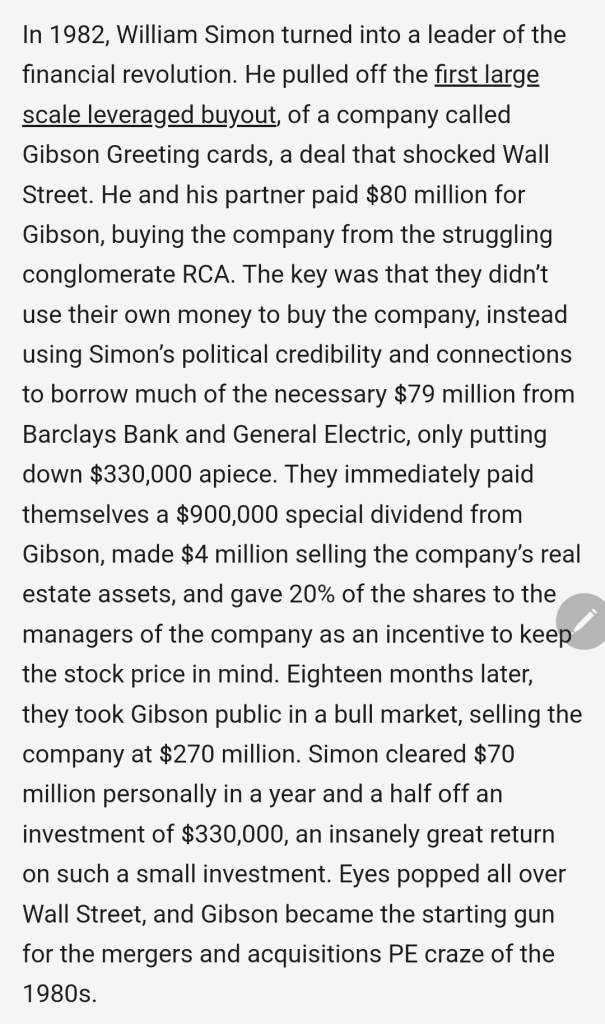Imagine, if you will, that you’re a screenwriter. You start your career, but you need help. You need someone to fight for you in a shark-infested town. So, you get an agent, who works for one of the three biggest agencies in Hollywood, to get your stuff made.
Okay, maybe not so intense. Either way, it’s a helluva deal – they’re not even taking the standard 10% commission fee! A few weeks later, you strike gold! Turns out they need someone to pen the story of twee reporter-turned-true-crime-podcaster Alex Mendohlson in a Netflix original series. It’s a big break, and you’re psyched! Other creatives represented by your agency, such as A-list actors and directors, are swiftly attached, and pre-production begins. But…
The production company making your show is…also owned by your agency. It has a different name, separate offices and its own executives, but they are under the same corporate umbrella. The studio is, naturally, looking to keep its budget cost as low as possible, while you are supposed to get the best deal possible from your agent who represents the production…and you. In short, your agency is representing your fiduciary interest while also looking to turn a profit on a significant investment.
You see the problem here?
I know, I know, ‘what does this have to do with fighting games Tann’ – I’m getting there!
The scenario I just described is one that has played out across Hollywood in the 2010’s. Agencies, formerly a partnership between powerful agents, are now mega corporations flush with cash from private equity, to the tune of billions of dollars. In turn, these agencies, incentivized by their small circle of private investors to make returns on those investments, have tried to find the most lucrative ways to increase their bottom line. This usually takes the form of vertical integration, where stages of production in similar industries are consolidated into one company.
The king of these practices is undoubtedly William-Morris Endeavor. Led by super agent Ari Emmanuel, and pumped full of cash from equity group Silver Lake Partners, WME has gone from an annual revenue of $513 million in 2014 to $3.2 billion in 2018. This is the result of massive spending sprees, including the acquisition of sports and modeling group IMG, mixed martial arts powerhouse UFC, the Miss America pageant, and others. In 2017, WME|IMG created a holding company to represent the whole of its properties moving forward, naming it Endeavor.
Alright fighting gamers, we’ve finally arrived!
If that name sounds familiar, it should. One of Endeavor’s more recent investments is RTS, a talent agency/brand consulting firm that focuses on e-Sports and gaming content creators, co-founded by Imane “Pokimane” Anys. Through a larg surge of Endeavor-backing, RTS entered a joint venture with Sony Interactive Entertainment to purchase Evo from former owners the Cannon brothers, who remain onboard as advisors. Recently, they announced that Rick “TheHadou” Thiher, the organizer behind Combo Breaker, will also be brought on as “General Manager” of the event.
On paper, this is wonderful. Evo, in my opinion, has stagnated greatly, providing the proper spectacle and prestige at the cost of player experience and flavor. It’s a cornerstone of fighting games considering its long history, but most would probably argue it doesn’t represent fighting games the best. Tournaments like CEO and Combo Breaker have rivaled the production of Evo as well as creating their own distinct look and style. Evo is (or was) almost a trade-show as much as a tournament. It showcases only a few titles rather than the sprawling mass that other tournaments do, the biggest of which will likely have some sort of developer presence, and new content announcements are typically expected during the finals. I would argue that symbiotic relationship has stifled, rather than elevated, Evo’s status as a tournament for players by players, into more of an industry-first event.
With new management can come new ideas, largely divorced from the often-times myopic view of the older generation. As the COVID-19 pandemic persists, having Sony as a co-owner can mean more direct integration with their systems, which are often the preferred offline console for most tournaments, in online events with trained staff to provide a (hopefully) smoother experience with stronger online platforms. Given that Sony and RTS/Endeavor also have incredibly deep pockets, this could mean a ramping up of amenities and infrastructure towards making Evo a less chaotic, more player-friendly event. Perhaps they can now afford to pay and keep on-hand a well-trained staff of bracket runners instead of relying largely on volunteer work with varying degrees of competence.
On paper. In practice, I’m definitely side-eyeing RTS/Endeavor a lot, moreso than even Sony, and I would very much like to know where their ambitions are aimed.
Private equity is a unique devil, one that turns what we’d call responsibility ownership of property into cash dumps for the ultra-wealthy, along with the middle management and consultants who orbit them. As author and economist Matt Stoller writes:
Private equity transforms corporations from institutions that house people and capital for the purpose of production into extractive institutions designed solely to shift cash to owners and leave the rest behind as trash
-Matt Stoller
Silver Lake Partners is so rich because they have their fingers everywhere. Seriously, give a look at their wikipedia page, it is staggering the degree of businesses that this PE group has invested into. By extension, immense wealth in pension funds and other capital resources from nations like Singapore, Canada, Saudi Arabia (there’s them again!) are driving these investments, taking a lot of the risk out of the hands of the individuals who manage the firm. The profits and value of the firms’ properties shoot into the stratosphere with that invested, risk-less capital, profits that really only come back to them and the upper management of their properties. All involved could care less if the assets and employees included with that property live or die, they will get their money either way through loopholes in bankruptcy and other financial law.
If that sounds like me being overly cynical, please be aware that this is entirely by design. Again, from Matt Stoller:

Take a struggling firm, raise money to buy it from other sources while investing little of your own personal wealth, saddle that company with that debt and sell off its various assets for max profit, take the thing public, then sell it off piecemeal later. Your personal return is incredible, and best of all, you are at no point saddled with the normal risk associated with buying and running a business or property. It’s the American Dream!
WME|IMG (Endeavor’s parent company, hereby referred to solely as Endeavor) has bought up an incredible degree of various entertainment enterprises. Between the UFC, IMG, Miss America, and its initial company, they represent a staggering amount of talent across various different industries, and have also since moved into production with the vertical Endeavor Content. Much like the opening hypothetical, Endeavor has the benefit of representing talent who they can then place in TV shows or films funded by their own vertical, such as “Just Mercy” with Michael B. Jordan.
While some partners of Endeavor have spoken up to say they haven’t felt pressured to use WME talent or had much corporate meddling, the conflict of interest is obvious and apparent. Not only that, it hasn’t lead to an increased windfall for Hollywood writer clients, the people actually working to make the art, and they actually saw their earnings decline even as scripted television exploded in popularity in the mid-2010’s. This was because, as demanded by the immense capital invested into it, WME sought to have maximum profit returns by using a system called “packaging,” which meant their agency got a large bonus from production companies for using their talent. This bonus, of course, not only came from the budgets of those productions, but it was also in perpetuity, as ten percent of the production’s overall gross earnings went back to the agency, something writers hardly ever see. A staggering 87% of shows in 2016 were packaged, the vast majority involving Endeavor.
It’s not only the Hollywood writers either, as their own execs and particularly UFC fighters get absolutely fleeced while management takes its sizable, hugely unequal cut. At this point, it would seem that like most companies with substantial PE investment, Endeavor is really no different than any other in that it seeks extremely high payouts for its top people and nothing for the people doing the work in any of their properties.
Which brings us back to Evo.
To be clear, the following is pure speculation that may or may not come to pass. But even so, I don’t think, given the history just laid out, that these prognostications are that outlandish
I can already tell you that the idea that RTS/Endeavor would potentially represent players while also co-owning the (unquestionably) biggest production for fighting games sits a little strange with me. It is not a conflict of interest to the degree that the earlier Hollywood example is, but there is no chance that RTS won’t seek to keep production costs in line. Yet if they are responsible for, say, how much Evo pays out its finalists, that will conflict with any players they represent. How could it not? If the idea is that RTS is to manage their lifestyle/brand by getting them the best possible deals and payouts, wouldn’t the company also having their hands partially on the purse for the biggest event of the year be contradictory?
Considering their history as well, I have my doubts that Evo is where it ends. This is hardly their first foray into eSports – in 2015, they acquired Global eSports Management (GEM), a firm meant to represent pro video game players and commentators, and scooped up its talent. From there, Endeavor, in league with Turner Broadcasting, created E-League, and set up GEM co-founder Min-Sik Ko as “Commissioner” of the newly formed venture.
I won’t lie and say I was the biggest fan of WME and Turner’s output, which I’ve written about. Coincidentally, not long after the Street Fighter V season of E-League, there was an exodus of talent from WME, including other GEM co-founder and then-global head of eSports for WME Tobias Sherman. E-League persisted, but otherwise it was all quiet on the eSports front for Endeavor. Until last year.
It’s also hard to ignore that the announcement of the Evo deal happened in the infancy of RTS, where there was little more than a logo, and it happened right before Endeavor made an Initial Public Offering and went public in April of 2021. You want investors to speculate on your potential, right? Announcements like that tend to do the trick.
I think it’s pretty clear that Endeavor is in the consolidation business, and their goal is to run or have a large slice of every major entertainment venture at both the talent and production level. They’ve done it for almost every other property they’ve owned, I don’t know why eSports would be any different.
Why that concerns me is that, as we’ve seen with Hollywood and the UFC, these kinds of PE-funded ventures rarely, if ever, benefit the majority. Revenue increases, production increases, but the middlemen who supply the money and manage things tend to make off with more than the talent and production people who actually put the thing together.
Again, this is by design, but I feel it nips at the ever-present tension underneath all fighting game events. Most major events are operated at a loss, and I am highly skeptical that organizing a tournament is any one of the head organizers’ full-time job. Because of that, most events don’t tend to reach beyond their means and are perfectly fine being what they are and have been, which is perfectly fine. But not every event is the same, and as we’ve seen certain events grow and grow and grow, the tension of wanting to grow larger but not having the money to pay for larger staff and production value and floor space increases. Not only that, players, eager to make gaming a full-time profession, want bigger and bigger payouts to sustain that goal, and deal with the adjacent tension of wanting smaller, more exclusive, but higher-valued tournaments than more traditional open events. At that point, having outside capital investment is pretty much a necessity, and an understandable one.
But it’s almost always a monkey’s paw. CEO was able to get a big arena that it could host a wrestling show and a fighting game event in, but it had to sign a deal with the city of Daytona to get the space, which lead to many players being racially harassed by locals and turning into a scapegoat for municipal panhandling ordinances being passed. A company can drop real money as pot bonuses for a few tournaments, but then immediately crash and burn, leaving no sustainable path forward. Major organizations that look bigger than ever with very wealthy investors who pay players big salaries can suddenly downsize with no notice after a couple years and fold because their racist, white-collar criminal lead investor would kill it rather than exit gracefully.

I don’t like the hobby I care a lot about being batted around like a yarn ball so that greedy cats like Ari Emanuel, Elon Musk, and the rest of Endeavor’s Board of Directors can make loads of money. Meanwhile, in their rush to consolidate everything, these industries stagnate, the bloat always resulting in worse service, worse pay, and worse output. Hollywood was able to fight back and force Endeavor to end packaging and sell off the vast majority of its content producing company to Korea, but they have one of the oldest, most powerful labor unions, the WGA, to help with that. What do gaming enthusiasts have? Mean tweets?
At the same time, I think it’s 2022 and people have enough to fear. All the systems in our lives use fear to move people, and I don’t think it’s healthy or honest. Toxicity comes from dishonesty, and I think it would be toxic to ignore what Endeavor has done in the past as much as it would be to claim with 100% certainty that what I’ve speculated in this blog will happen. I’d love nothing more than to be completely wrong. My limited interactions with Rick have shown him to be an upstanding person and incredibly hard, dedicated worker; if being GM of Evo, whatever that means, means he gets to do this work full time and make a living from it, that would be amazing.
Still, forewarned is forearmed. I would rather be cautiously aware of the poison of PE and what that could mean than whistle through the snake pit barefoot. At this point all we can do is wait and see what an offline event might look like and how RTS will manage its business.
Until then? I’ll believe it when I see it.

Leave a comment